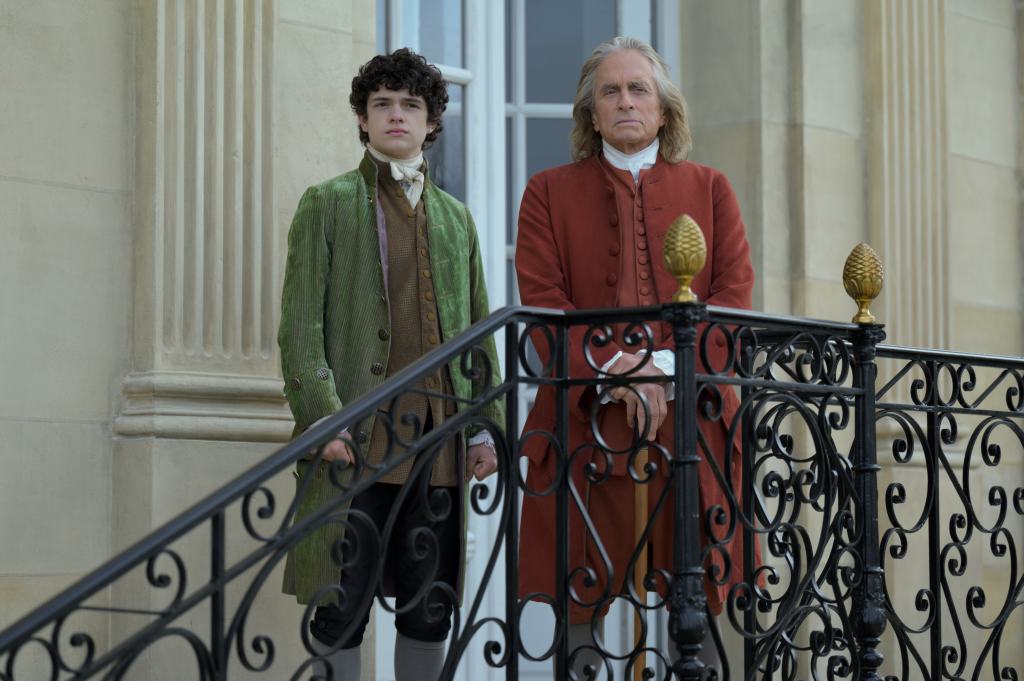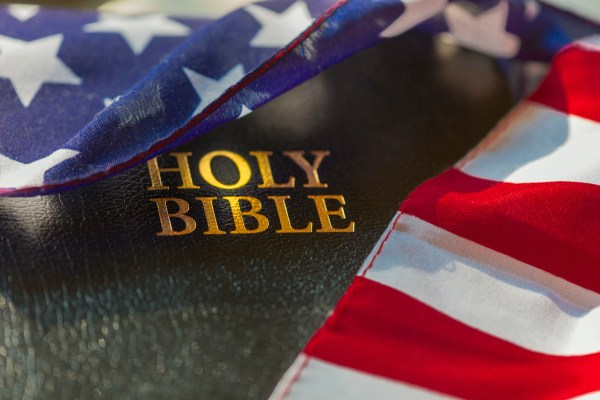With the 250th anniversary of the United States’ independence just over the horizon, Americans across the country are beginning to celebrate the events that made us who we are. In that spirit, Apple TV+ is currently streaming a miniseries based on the Revolutionary War starring Michael Douglas as the titular Franklin.
Five episodes in, it’s clear the series is not perfect television, let alone perfect history. Nonetheless, Franklin’s high production value and compelling acting from both American and European cast members make up for a sometimes slow pace. And thematically, it captures the essence of the American Revolution—the struggle for freedom, and faith in a better life independent from tyranny.
Rather than depict Benjamin Franklin’s life in its fullness, the series focuses on his eight-year diplomatic mission to France. Through skillful diplomacy, intrigue, and even propaganda, Franklin forged the alliance that was crucial to victory in the War for Independence. As the series ably highlights, it was a task fraught with uncertainty.
When Franklin left America, the Revolution was in dire straits. British troops had forced the Continental Army out of New York City and defeated an attempt to liberate Canada. The United States desperately needed financial and military support from Europe. Franklin’s role was to secure a treaty with France and build a European coalition for the American cause. Without his spycraft and political art—and the guns, money, and men they secured—America would not have survived the war.
While in France, Benjamin Franklin cultivated an 18th-century air of celebrity by becoming an iconic symbol of Americanness, with his frontier-inspired fur hat and plainspoken manners. He was hailed as the “creator” of electricity and spent time with famous Enlightenment philosophers like Voltaire. People referred to him as “Doctor,” even though his formal schooling lasted only two years. In A Great Improvisation, the book the series is based on, the Pulitzer Prize-winning biographer Stacy Schiff describes the way Franklin used celebrity status as an “inventive act.” He mixed a cosmopolitan sensibility and a provincial attitude to charm the French and secure a future of freedom for his country. He convinced the French to help America win because he came to represent America herself.
Perhaps the central theme of Franklin is American identity. What did it mean to be a citizen of this newly founded republic? What was this “Novus Ordo Seclorum” our Founders were building? In the series, the emergence of this American identity is dramatized principally through the experience of Franklin’s grandson, William Temple Franklin (Noah Jupe). His father, William Franklin, was the last royal governor of the New Jersey colony, and a convinced loyalist. At one point during the Revolution, patriot forces imprisoned him and Franklin the Elder refused to intervene. Temple struggles with these divisions in his own family, all while confronting the culture shock of the decadent French monarchy. The political story running through Franklin may center on the man himself, but it is the education of this young person that provides the show’s heart.
Despite the seemingly impossible odds they face, Franklin and his grandson are sustained by their earnest faith in the ideals of the Revolution. The Americans are surrounded by cynics, British and French alike, but cling to the sense that they are contending for a better world. “’Tis a Common Observation here that our Cause is the Cause of all Mankind,” the historical Franklin wrote in one letter from Paris, “and that we are fighting for their Liberty in defending our own.” The only reason these men subjected themselves to the dangers of 18th-century travel and court intrigue is because they believed that America could show the world a better way of life. The last line of the Declaration—“we mutually pledge to each other our Lives, our Fortunes and our sacred Honor”—is never far from the characters’ lips.
Even though the Founders shared these ideals, they differed about how to make them real—and Franklin does not shy away from this conflict. At the series’s midpoint, Massachusetts statesman John Adams (Eddie Marsan) arrives in France and seems determined to ruin the careful diplomatic edifice Franklin has built. Although the portrayal of these men’s rivalry is a touch too mean-spirited, the series does capture the tension within the American mission. The historical Franklin had a decidedly mixed view of the New Englander. “I am persuaded,” he wrote in a 1783 letter, “that he means well for his Country, is always an honest Man, often a wise one, but sometimes, and in some things, absolutely out of his senses.” Through the Adams-Franklin relationship, the series hints at the broader complexities and contradictions of the Founding itself.
American identity has never been an entirely settled thing. Before independence could even be won, disputes among New Englanders, southerners, and the middle colonies threatened to tear apart the new nation. Radicals and conservatives, liberals and republicans, slaveholders and abolitionists, deists and Christians all had different visions for an independent future. Franklin had the benefit of dying in 1790, however, before partisan debates between Adams, Alexander Hamilton, and Thomas Jefferson enflamed the republic. He therefore stands somewhat above their squabbles, a voice of common sense and consensus exemplifying a kind of Enlightenment innocence and worldly wisdom. There is something in his life—his humility, his desire for knowledge, his love of liberty—that represents the meaning of America.
Given the current 1619 Project-inflected media environment, it should be no surprise that some commentators have rushed to condemn Franklin for being out-of-step with progressive values. Slate senior editor Rebecca Onion dismissed the show as “AP U.S. History TV,” for example. Her criticisms are reminiscent of the way historian (and Franklin biographer) H.W. Brands coined the label “Founders Chic” for the kind of storytelling that foregrounds the great men of our past. These writers and others argue that a reverential attitude toward the early republic distorts a record full of injustice and imperfection.
But when popular culture opens a window into this historical complexity, as Franklin surely does, historians should welcome it with open arms. For years, academics have complained about the decline of history and humanities majors. But to some extent, the dwindling interest in their subject matter is a self-inflicted wound. Most readers, let alone students, simply do not care about the dour academic narratives of oppression and power politics. They would much rather learn about the real accomplishments and real failures of real people.
The “Founders Chic” genre certainly has its problems, and Franklin is no exception. But honoring the people who made America, and getting the American people excited about our history—and our future—is valuable in itself.








Please note that we at The Dispatch hold ourselves, our work, and our commenters to a higher standard than other places on the internet. We welcome comments that foster genuine debate or discussion—including comments critical of us or our work—but responses that include ad hominem attacks on fellow Dispatch members or are intended to stoke fear and anger may be moderated.